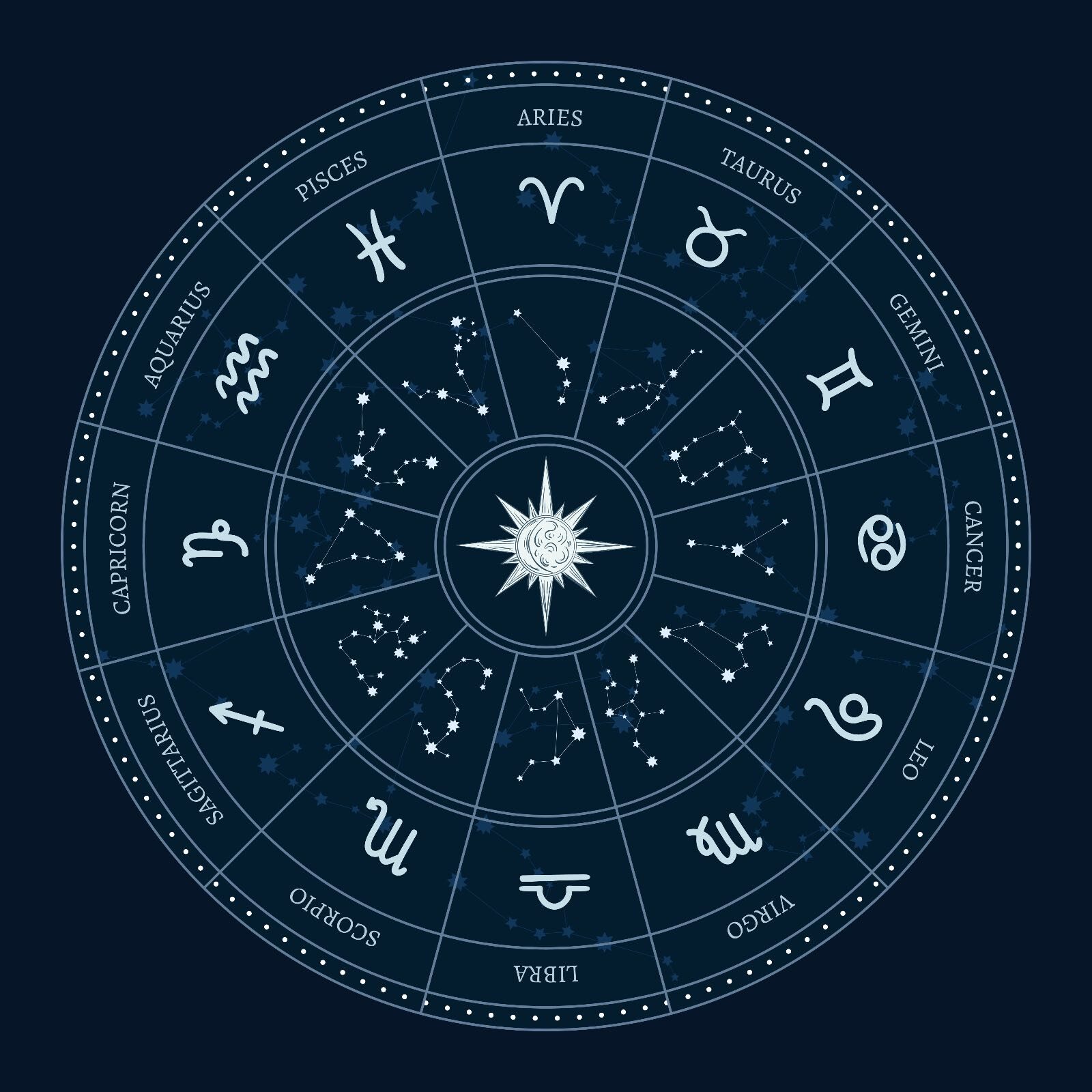Dreams have always been mysterious and intriguing to people. Since ancient times, people have tried to understand the meaning of dreams and explain them. There are those who believe that dreams reflect reality or are premonitions of the future. There are those who believe that dreams are simply random manifestations of brain activity. Dream interpreters, who try to interpret dreams and find deeper meaning in them, have had their place in different cultures and eras. But is dream interpretation real or just a fiction? Below, we will take a closer look at the topic of dream interpreters and explore different points of view.
What do dreams mean?
What do you see in a dream?
Do dreams come true?
Pros and cons of dream interpretation
The scientific basis of the dream interpreter
Alternatives to dream interpretation
What do dreams mean?
 We likely dream as a result of a combination of factors, including biological, psychological, and cognitive elements.
We likely dream as a result of a combination of factors, including biological, psychological, and cognitive elements.
One of the main biological factors in the occurrence of dreams is the REM sleep phase. REM (Rapid Eye Movement (rapid eye movement) is a phase of sleep in which brain activity is similar to that during wakefulness, but muscle activity is largely suppressed. This is the period in which dreams occur most frequently.
Psychological factors, such as our personal experiences, memories, emotions, and conscious and subconscious thoughts, can also influence the content of dreams. Perhaps dreams may be one way our brain processes the events of the day, solves problems, or works through emotional experiences.
Cognitive factors, such as our cognitive style, imagination, and creative thinking, can also influence the content and frequency of dreams. For example, people who are creative or have a rich imagination may experience vivid and complex dreams.
In conclusion, the occurrence of dreams is likely a complex process involving biological, psychological, and cognitive factors. However, the exact meanings and causes of dreams remain a subject of scientific investigation and are individual experiences that may vary from person to person.
What do you see in a dream?
The meaning of dreams is a subject that is scientifically complex and continues to be researched. While the exact meaning of dreams is still unknown, there are several theories that attempt to explain why we dream and what they might mean.
One theory is that dreams may be related to our subconscious thoughts, desires, and fears. Dreams may provide an outlet for our subconscious processes that we may not fully understand or recognize while awake. For example, dreams may be a way for our brains to deal with psychological conflicts or desires that we have not consciously recognized. This approach originated with S. Freud's 1900 work "The Interpretation of Dreams".
Modern approaches are based on a neuroscientific perspective. It is believed that dreams are influenced by the way our brain processes the events and information of the day. In dreams, we may see images that we have experienced during the day, or combine them with new thoughts and ideas. This may be the brain's way of processing our memories and emotional experiences, allowing us to better understand and interpret our daily lives. Anything we experience during the day can influence our dreams – a violent film, from headphones music listened to, tense traffic situation.
Bad dreams
Bad dreams or nightmares are dreams that can be unpleasant, frightening, or anxiety-provoking. They can involve a variety of themes, such as dangerous situations, conflicts, anxiety, loss, or failure. Bad dreams can cause emotional distress, discomfort, and can affect sleep quality and overall well-being.
Seeing death in a dream, in any form, can be a particularly disturbing and distressing experience. It can trigger deep emotions such as fear, anxiety, sadness, or confusion.
Interpreting the meaning of dreams, including bad dreams and visions of death, is a complex task. There are a number of psychological and cultural factors that can influence the meaning and interpretation of dreams, and it can be an individual experience that varies from person to person.
It has been observed that bad dreams can be related to stress, anxiety, fears or conflicts., which we may experience while awake. Seeing death in a dream may be related to fears about death or the end of life, and this in turn may also be related to our subconscious fears or emotional experiences. However, it has been pointed out that more in-depth research would be needed to confirm such a hypothesis.
It is important to note that the meaning of dreams is subjective, and dream interpretation should be based on each person's personal perception, experiences, and context. If dreams, including bad dreams and visions of death, are causing you concern or anxiety, it may be helpful to talk to a health professional, such as a psychologist or sleep expert, for further advice and support.
Animals and people in dreams
The meaning of dreams, including seeing animals or people in dreams, can be ambiguous and often depends on the context of the dream, individual experiences, and interpretations. The meaning of dreams cannot be defined unambiguously, as it is subjective and can be different for different people. However, there are some general interpretations that can be given about the meaning of dreams.
Seeing animals in your dream can be defined by different symbols, meanings, and interpretations, depending on the type of animal and the context. For example, a dog in a dream can symbolize loyalty, faithfulness, or friendship, while a cat can be associated with meanings of independence, intuitiveness, or mystery. A wolf can be interpreted as instincts, danger, or challenge. The interpretation of a dream animal also depends on the individual experiences, relationships, or emotions that the animal represents for you.
Seeing people in dreams can depend on, for example, the role, relationship, or behavior of the person in the dream. For example, a man in a dream can symbolize masculinity, authority, fatherhood, or masculine qualities. A child can be associated with meanings of childhood, innocence, curiosity, or nurturing. However, seeing people in dreams can also indicate your connection to your personal relationships, emotions, or experiences with these people while you are awake.
Do dreams come true?
Dreams are not usually predictive or directly fulfilled. Rather, dreams are a psychophysiological phenomenon that occurs during sleep and is related to brain activity. Dreams can be complex and ambiguous, and there is often no direct connection between the dream and waking events.
Some people may experience subjective synchronicity, where they may perceive that their dreams are connected to their waking experiences. This may be due to the transfer of memories, emotions, or subconscious processes into dreams. However, this does not mean that dreams are predictive or that they are directly fulfilled.
Interpreting dreams and relating them to waking events is not objective and depends on individual experiences and interpretations. Some people believe that dreams can provide clues about the future or help them understand their subconscious thoughts and emotions. Others may view dreams as simply visual and emotional experiences created by the brain, not directly related to waking events.
Pros and cons of dream interpretation
Pros of dream interpretation
Interpreting dreams and looking for connections can be beneficial in many different ways. Here are five main reasons:
- Self-development. Dream interpretation helps you deepen your self-understanding and discover your inner world.
- Supporting emotional well-being. Interpreting dreams allows you to discover the emotions present in dreams and cope better by being aware of them.
- Creative expression. Dream interpretation stimulates creative thinking and self-expression.
- Developing intuition and inner wisdom. Dream interpretation helps develop intuition and trust your gut feeling.
- Increasing sleep awareness. Interpreting dreams increases sleep awareness and allows for better sleep quality and awareness of the impact of sleep on our lives.
Cons of dream interpretation
- Subjectivity. Dreams are subjective experiences and their interpretation can vary from person to person, which can lead to conflicting or inaccurate interpretations.
- Scientific basis: Dream interpretation is not a scientifically proven method and does not have a solid scientific basis.
- Psychological stress. Dream interpretation can cause psychological stress as people begin to search for a deeper meaning or connection between their dreams and real life.
- Misleading. Dream interpretation can be misleading because dreams are often metaphorical and symbols can be ambiguous.
- Focus on the wrong area. Constantly interpreting dreams can take attention and energy away from real life and current challenges, as well as affect daily functioning and quality of life.
The scientific basis of the dream interpreter
Dreams are a complex and multifaceted phenomenon that has been studied by scientists and the scientific community for decades. Several studies have been conducted using different scientific fields, including neuroscience, psychology, and cognitive science, to understand the meaning of dreams and their possible functions. However, there is still no single and clear consensus on what exactly dreams mean.
The Sleep Foundation has analyzed in its article, that the subject of dream interpretation is controversial. However, they confirmed that based on the available evidence, it is difficult to claim that there is a definitive method for interpreting dreams and understanding their meaning. Almost all experts acknowledge that dreams can include content that is related to waking experiences, although the content may be altered or misrepresented. For example When describing dreams, people often refer to people they clearly recognize, even if their appearance is distorted in the dream..
One of the most common theories about the meaning of dreams is that they may be related to a person's psychological and emotional processes. Dreams may be a way for the brain to process and integrate the events, memories, and emotions of the day. For example, dreams may be related to a person's subconscious, fears, desires, or emotional conflicts that they have experienced during the day. In the study "Relationship between dreaming and memory reconsolidation" by Zhao et al. It was noticed that people who dream more often are more imaginative and emotional in everyday life.
It has also been found that dreams may be linked to cognitive processes, such as creative thinking and problem solving. Dreams may provide the brain with a chance to process information and make new connections that may be useful in the waking state. Some research has shown that dreams may also be linked to the consolidation of human memory, helping us retain and categorize new information.
Greenberg et al. evaluated in their study "A research-based reconsideration of the psychoanalytic theory of dreaming" problems in two subjects during dreams and during pre- and post-sleep waking. They showed that problems were very common in the content of dreams and that these problems were almost systematically related to problems observed during pre-sleep waking. Thus, this study confirmed that personal concerns influence the content of dreams. In addition, it provided new results suggesting that dreams may have a psychological problem-solving function.
Neuroscientists studying the biological basis of dreams have discovered that dreams are associated with distinct patterns of brain activity, such as rapid eye movement (REM) sleep, and that different brain regions are activated during dreams. This has led to a better understanding of the physiological aspects of dreams and their relationship to brain activity.
In conclusion, dreams are a complex phenomenon that scientists continue to study. Although the exact meaning and purpose behind dreams remain scientifically unclear, there is evidence that dreams may be related to a person's psychological, emotional, and cognitive characteristics.
Alternatives to dream interpretation
- Dream awareness. This involves being aware of your dreams without putting too much emphasis on interpreting them. Simply noticing and acknowledging your dreams can help increase your awareness of your inner world.
- Self-analysis. Deeper self-analysis and introspection can help you understand the meaning of symbols and themes in your dreams, based on your own personal experiences and emotions.
- Creative self-expression. Dream interpretation as a form of creative expression may involve painting, drawing, writing, or other creative processes that allow one to express what is experienced in dreams through art or writing.
- Psychotherapy. If dreams are causing emotional distress or anxiety, psychotherapy may be an alternative approach that helps the person explore the emotions and themes associated with dreams under the guidance of a professional therapist.
- Inner reflection. Inner reflection, meditation, or mindfulness practices can help deepen self-awareness, wholeness, and greater awareness of one's inner world, including dreams, without focusing on the external meaning of their interpretation.
Summary
In conclusion, the question of whether the interpreter of dreams is real or fictional remains unanswered. Although there are many theories and approaches, there is still no clear evidence-based consensus on the true nature of dreams. Dream interpretation can be subjective and individual, depending on a person's personal beliefs, cultural influences, and psychological state. Whether dreams are real or fictional is ultimately up to each individual to decide.

Vallo Põldaru
TrainerVallo is a marketer by profession, a specialist in human internet behavior, and a trainer whose favorite topics are marketing psychology, spiritual care, and sustainable mental health in today's society.
8 Date Topics That Will Keep the Flame of Love Alive





